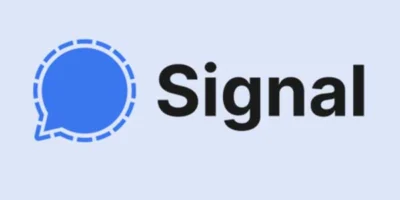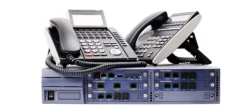
SAN FRANCISCO, Calif. - Sep 08, 2025 (UTC) - Signal announced Monday the launch of its secure backup feature, offering users both free and paid options to store their encrypted conversations in the cloud for the first time in the messaging app’s history, while simultaneously introducing its first paid subscription service.
The privacy-focused messaging platform has historically refused to offer any form of cloud backup, leaving users vulnerable to losing their entire conversation history if they lost or broke their phones. This could be especially troublesome if you lost or broke your phone. While you could transfer conversations from one phone to another, there was no cloud backup in place. The new feature finally solves that problem, making Signal a more valuable app for secure messaging.
Free Tier Specifications
Signal’s free tier gives users 100MB of storage for text messages and the last 45 days’ worth of media. The company said in its blog post that it stores messages after compressing them, and 100MB would be sufficient for “even heavy” users.
The free backup option covers all Signal messages through compression technology, with 100MB of storage for text messages and the last 45 days of media. This approach ensures that even power users can maintain comprehensive text message histories without paying for the service.
Debut of First Paid Feature
For users who want to store beyond the last 45 days of media, the company is offering a $1.99 per month paid plan with 100GB of storage. This marks a significant milestone as Signal’s first paid feature, and the company said it’s charging users to assist with the cost of storage in a privacy-preserving way.
The paid subscription provides unlimited messaging history as well as all media, not just the past 45 days, up to 100GB, representing a substantial upgrade for users who need comprehensive media archives.
Advanced Security Architecture
Signal has implemented zero-knowledge technology to ensure maximum privacy protection for backed-up data. Signal is using zero-knowledge technology to secure its backups, so they’re not linked to a particular user or a specific payment method. Users will receive a 64-character recovery key that is generated on the device to unlock their backups.
This security model ensures that Signal’s servers never access the recovery keys, maintaining the company’s commitment to user privacy even with cloud storage functionality. Backups refresh daily, excluding view-once messages to preserve the ephemeral nature of certain communications.
Limited Initial Rollout
At launch, Signal is offering this feature only on the beta version of its Android app, but said that cross-platform availability is coming soon. The phased rollout approach allows Signal to test the system’s reliability and security before broader deployment.
Secure backups are currently in beta for Android, with iOS and desktop versions coming soon, ensuring that the company’s multi-platform user base will eventually have access to the backup functionality.
Competitive Landscape Context
The backup feature launch positions Signal more competitively against mainstream messaging platforms. Amid Signal rivals, WhatsApp offers end-to-end backup through an optional feature that users have to enable, though Signal’s zero-knowledge approach provides additional privacy guarantees.
This contrasts rivals like WhatsApp by prioritizing privacy with end-to-end encryption and a secure PIN system, potentially giving Signal an edge among privacy-conscious users.
User Experience and Setup
Users can access the new backup functionality through a straightforward process. You can enable the secure backup feature from the app’s Settings, which will then begin to back up your content daily.
The system provides auto-syncing features for paid subscribers while maintaining the security standards Signal users expect from the platform.
Future Development Plans
Signal has outlined ambitious expansion plans for the backup feature. It noted that, in the future, it plans to let users save a backup archive wherever they want. Plus, it intends to enable users to transfer their message history between platforms.
These planned enhancements would give users greater control over their data storage locations while maintaining the security and privacy standards that define the Signal platform.
Strategic Implications
The introduction of paid features represents a potential shift in Signal’s business model, which has traditionally relied on donations and grants. By offering premium backup services, Signal creates a sustainable revenue stream while maintaining its commitment to privacy-first design.
The backup feature addresses one of the most significant user complaints about Signal while preserving the zero-knowledge security model that differentiates it from competitors. This balance between usability and privacy could attract users who previously hesitated to adopt Signal due to backup limitations.
Technical Specifications
The free version offers 100 MiB of storage; a paid plan increases this to 100 GB for $1.99/month. A 64-character recovery key is essential for accessing backed-up data, ensuring that only users can decrypt their stored conversations.
The implementation excludes certain message types from backups, including ephemeral messages and single-view content based on defined criteria, maintaining the integrity of Signal’s disappearing message functionality even in backup scenarios.





